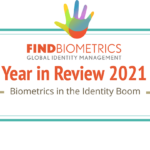Uganda has become the latest country to launch a biometric refugee identification program in collaboration with the UNHCR, the United Nations’ refugee agency.
With additional assistance from the World Food Programme, government authorities will use fingerprint readers and iris scanners to scan the country’s 1.4 million refugees, many of whom have recently arrived from the Democratic Republic of Congo and South Sudan. The plan is to have six teams process about 18,000 people per day in refugee settlements and urban areas, with the aim of completing the process to be completed in September.
The effort comes after Uganda’s prime minister issued a directive demanding the authentication of refugee data, and as with the UNHCR’s other recent biometric refugee tracking programs, the aim is to ensure that resources aimed at the refugees are able to reach those in need, and to effectively track and serve refugees more generally. As UNHCR Representative Bornwell Kantande explained in the organization’s announcement of the project, “We want to have better services for all refugees and host communities, and the basis of that is verification.”
The program’s implementation reflects the UNHCR’s growing enthusiasm for such biometric solutions. The organization partnered with government authorities in Ethiopia in autumn to establish a Biometric Identity Management System in that country, and more recently announced that it would work on a biometric refugee settlement program with government authorities in Nigeria. The UNHCR says that its new Uganda project represents the biggest in its history.
Source: UNHCR
–
March 2, 2018 – by Alex Perala






Follow Us